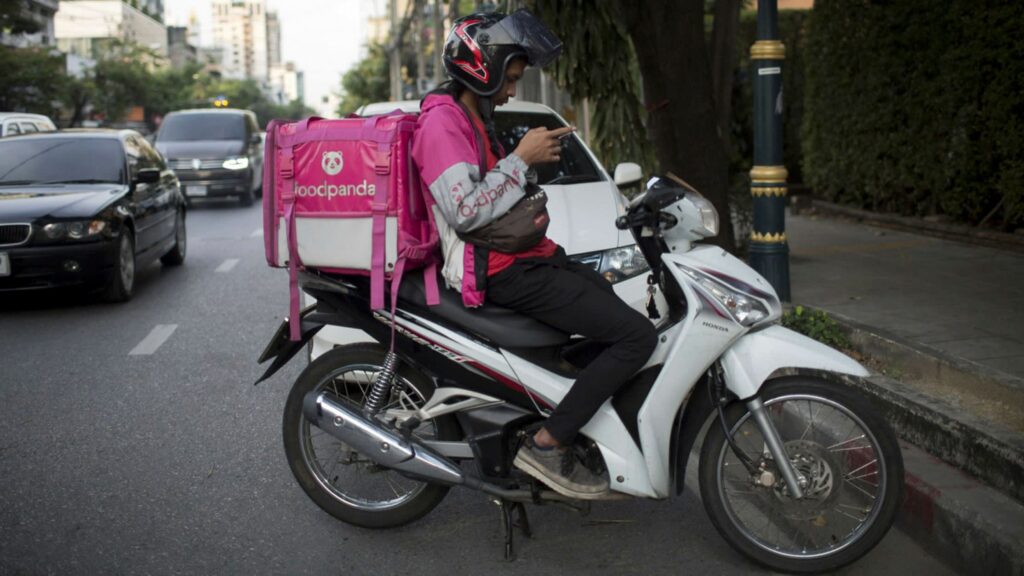Delivery Hero shares tumble as losses set to continue


Delivery Hero lost more than a quarter of its value on Thursday morning after the food delivery company disappointed on this year’s profitability outlook and investors worry it lags behind global rivals such as Uber and DoorDash.
The Berlin-based group, one of the world’s largest food delivery businesses which operates under brands such as Foodpanda and Talabat, enjoyed supercharged growth during the pandemic lockdowns.
The company is investing heavily to build hundreds of small urban warehouses to enable rapid deliveries of groceries and other kinds of ecommerce, where it faces stiff competition from private start-ups such as Getir and Gopuff.
Total customer spending on Delivery Hero’s apps for the fourth quarter of 2021 grew by 39 per cent to €9.64bn, the company reported on Thursday, a deceleration from the 81 per cent growth in the same period in the previous year and slightly below analysts’ expectations.
Revenues for the full year were up 89.5 per cent year on year to €6.6bn, but losses — after adjusting for certain items — widened to €781mn.
Delivery Hero said it expected gross merchandise volumes of €44bn-45bn this year but would not achieve overall profitability.
Analysts at Citi said the 2021 results were “slightly disappointing”, while guidance for the coming year implied earnings before interest, taxation, depreciation and amortisation of €440mn-540mn, or 15 per cent below consensus expectations at the midpoint of the range.
Shares in the company were 25 per cent lower by midday at €50.34. The company’s market capitalisation has almost halved so far this year to €12.5bn, as investors have taken a dimmer view on lossmaking tech stocks overall.
“Overall it was a super quarter. We have been outgrowing the industry this year,” said Niklas Östberg, Delivery Hero’s chief executive.
But he conceded that “certain actions to increase future profitability”, such as reducing promotional incentives and pushing to increase customers’ spending on each order, may have hit revenue growth by “a couple of per cent”.
Delivery Hero has accelerated its push into rapid food delivery services, where its couriers take groceries and convenience items to customers from small urban warehouses operated by the company. This Dmart business sees Delivery Hero taking greater control of its operations than its traditional business of ferrying meals from restaurants, and therefore requires upfront investment in property and logistics, executives have argued.
Delivery Hero opened more than 200 Dmart warehouses in the fourth quarter, taking its global total to 1,074 by the end of the year.
While Delivery Hero forecasts its traditional restaurant delivery business to become profitable this year — at least by its own measure of adjusted earnings as a percentage of total customer spending — heavy investment into quick commerce will continue to drag on overall profits.
Nonetheless, Delivery Hero insisted that it has a “clear path” to profitability, driven by scale and increased automation.